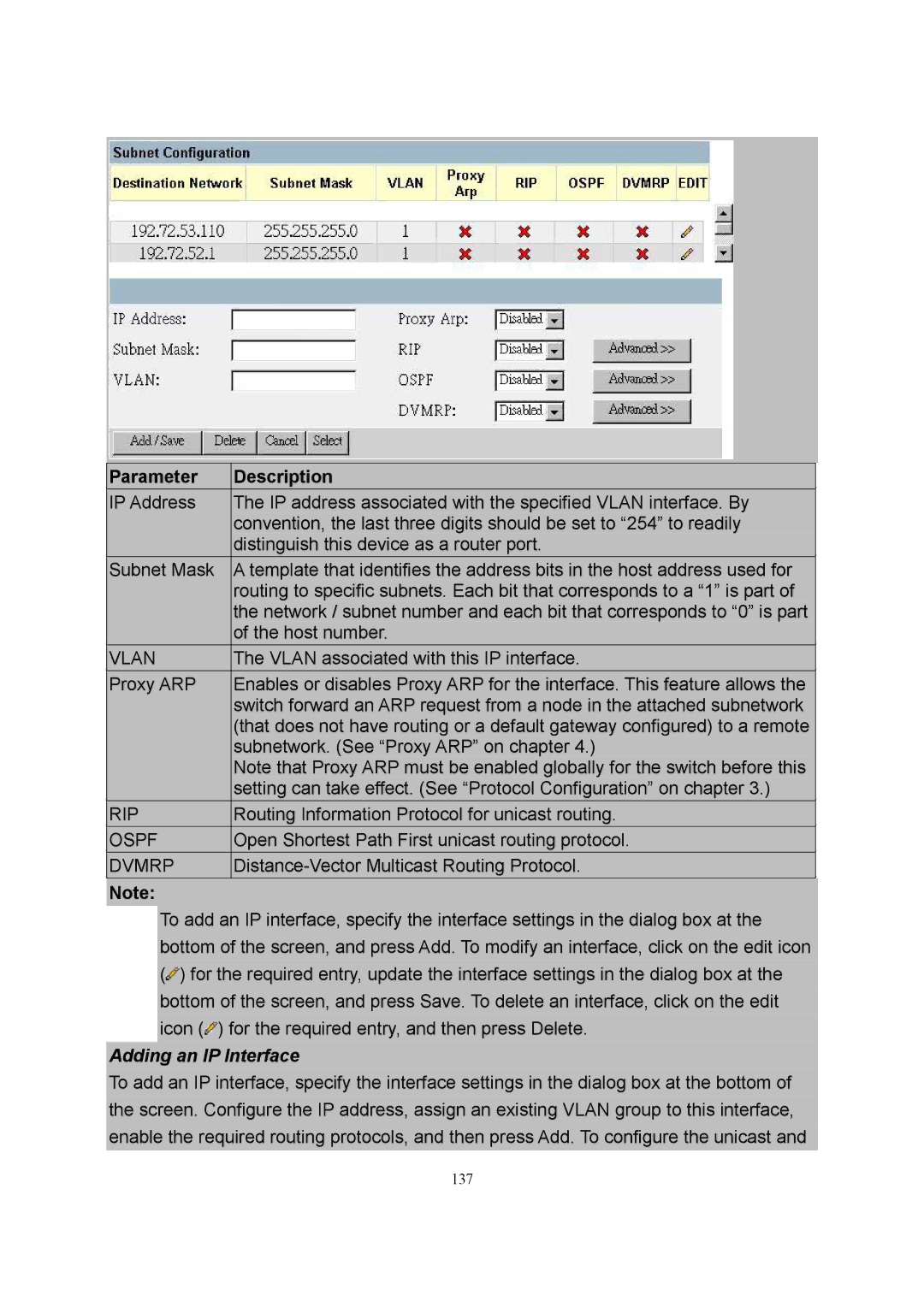
|
|
|
| Parameter | Description |
| IP Address | The IP address associated with the specified VLAN interface. By |
|
| convention, the last three digits should be set to “254” to readily |
|
| distinguish this device as a router port. |
| Subnet Mask | A template that identifies the address bits in the host address used for |
|
| routing to specific subnets. Each bit that corresponds to a “1” is part of |
|
| the network / subnet number and each bit that corresponds to “0” is part |
|
| of the host number. |
| VLAN | The VLAN associated with this IP interface. |
| Proxy ARP | Enables or disables Proxy ARP for the interface. This feature allows the |
|
| switch forward an ARP request from a node in the attached subnetwork |
|
| (that does not have routing or a default gateway configured) to a remote |
|
| subnetwork. (See “Proxy ARP” on chapter 4.) |
|
| Note that Proxy ARP must be enabled globally for the switch before this |
|
| setting can take effect. (See “Protocol Configuration” on chapter 3.) |
| RIP | Routing Information Protocol for unicast routing. |
| OSPF | Open Shortest Path First unicast routing protocol. |
| DVMRP | |
| Note: |
|
To add an IP interface, specify the interface settings in the dialog box at the bottom of the screen, and press Add. To modify an interface, click on the edit icon (![]() ) for the required entry, update the interface settings in the dialog box at the bottom of the screen, and press Save. To delete an interface, click on the edit icon (
) for the required entry, update the interface settings in the dialog box at the bottom of the screen, and press Save. To delete an interface, click on the edit icon (![]()
![]() ) for the required entry, and then press Delete.
) for the required entry, and then press Delete.
Adding an IP Interface
To add an IP interface, specify the interface settings in the dialog box at the bottom of the screen. Configure the IP address, assign an existing VLAN group to this interface, enable the required routing protocols, and then press Add. To configure the unicast and
